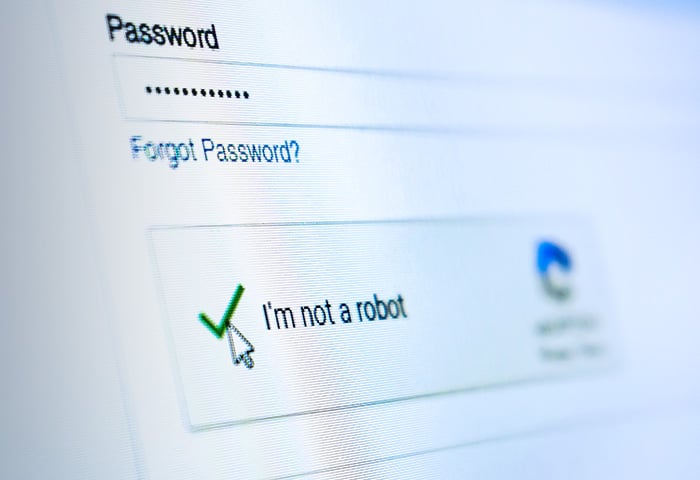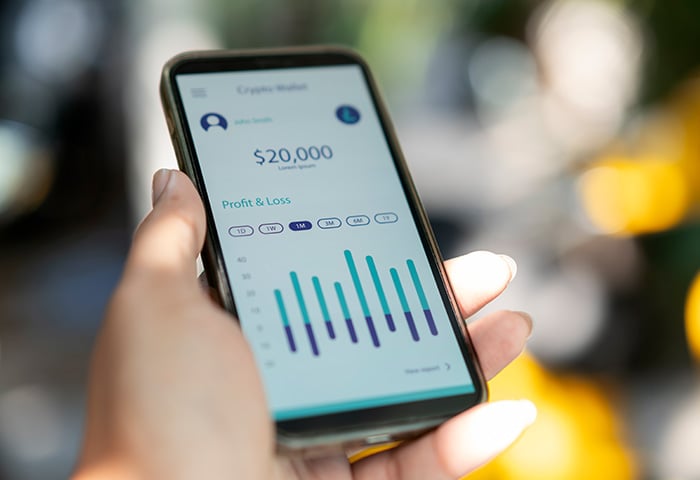What data does Google store about its users?
Anyone using Google services should take time to ask and answer this question: “What information does Google collect about me?” Educate yourself about your choices and learn how Google uses your data.
Google mines and stores data from many different sources, the details of which are listed in their privacy policy. Here are some examples:
-
Gmail: Google can read and store information from every email you write and receive, including in the spam, draft, and trash folders.
-
Google Maps: Google saves every location you search, in addition to all the places you physically visit with your devices, even if you aren’t logged in. Are you using Waze instead? Google owns that too. The ubiquity of phones and our constant use of them makes them almost like tracking devices we carry around willingly.
-
Android devices: Because Android phones and tablets run on an operating system built by Google, the company can track which ads you’re shown while using your phone. Google also knows what time, down to the second, you open each app.
-
Google apps: The Google Play store records all your searches and downloads, as well as any rewards cards used. Google also tracks which articles you’ve read through Google News.
-
YouTube: Google acquired YouTube back in 2006. When you’re using YouTube, Google tracks your search history, your watch history, how long you spend watching videos, and all your comments and likes or dislikes.
-
Google Assistant: Every request you make and every question you pose is recorded — you can even listen to the audio playback.
-
G Suite: Your calendar shows where you’ll be and when, and Google Hangouts saves all of your conversations.
What about personal and sensitive information?
Google builds a data profile for each person with a Google account. A quick look under Personal Info on your Google account page will confirm that you’ve already given Google your gender and birthday. Addresses are easily added to stored information once you label a location as “home” or “work” to save time on Google Maps. From there, it's as simple as connecting two dots to establish your everyday route from home to work.
By monitoring all your YouTube searches, for example, Google gets insights into your life. Workout videos offer information about your level of physical activity, news videos indicate a political stance, and other content — like a favorite web series, how-to videos, music, and subscribed channels — can point to sexual preferences, age, and ethnicity. All of this sensitive personal data can add up to an intimate digital profile, one you may or may not feel comfortable sharing.
How can I find out what data Google has on me?
It’s your data, so it's only fair for you to be able to see what information Google has collected about you. The fastest and easiest way to get a comprehensive look is to use Google Takeout, the company’s data export service. After you download your Google data with Google Takeout, follow the instructions to get a glimpse of yourself from Google’s perspective.
How can I protect my personal data?
Now that you’ve seen what’s in your data report from Google Takeout, you might be considering how to better limit your data sharing and protect your personal info. After all, Google isn’t the only company collecting data on you — third-party data brokers do this as well, and unlike Google, they make money by selling your data to other people.
AVG BreachGuard helps you set up privacy settings on your accounts with major search engines and social media platforms. In addition, it also sends opt-out requests to third-party data brokers — because if data brokers don’t have your data, they can’t sell it to anyone else. BreachGuard also goes a step further and scans the dark web for any of your leaked personal information, including passwords, to ensure you’re protected in all corners of the internet.
How does Google collect this information?
Is Google collecting data just from its search engine? No, Google collects data from many different tools they have around the web — they are master online trackers.
One particularly effective tool they use is IP address tracking. An IP address is a string of numbers and letters that identifies your device when connecting to the internet. Although an IP address won’t reveal exactly who you are, it’s great for identifying your location, sometimes even your exact address. Location is valuable data for customizing ads, a primary source of revenue for Google, because advertisers want relevant ads reaching local audiences.
First-party cookies are used by websites to remember things like your user preferences and items in your shopping cart. Just like a parent anticipating the return of their child, the site you’re visiting wants to make you feel at home.
Cookies attach to your browser when you first visit a new site, and they collect certain information about you. First-party cookies are used by websites to remember things like your user preferences and items in your shopping cart. Just like a parent anticipating the return of their child, the site you’re visiting wants to make you feel at home.
But other types of cookies track you around the internet and log your activity on lots of different websites. Whereas IP tracking collects data only about your location, third-party tracking cookies can store and reveal a whole lot more information about you.
All of this learning and customization builds a picture of who you are. Other things you do around the internet, like watching videos or adding items to your cart, continue to fill out the picture. Uncomfortable with third-party cookies? You still have some power; one quick browser cookie-clearing session and all of this information can be wiped away. And many browsers automatically block third-party cookies from the start.
So, is Google spying on me?
The short answer is yes. But it's not just you — Google keeps tabs on everyone who uses their services. In the physical world, following someone around town — watching them walk into their home, reading their mail, keeping track of the people they interact with — would all be seen as clear signs of spying. Yet Google does all of this and more: tracking where you go through Google Maps and Waze, reading all of your emails in Gmail, remembering contacts in your network, and compiling it all into a data profile about you.
How could Google Maps route the best way home for you without knowing where you live?
Just thinking about this can be quite unsettling, but it’s important to remember that this is all data that you’ve voluntarily entered or revealed while using Google’s services. How could Google Maps route the best way home for you without knowing where you live?
With voice-activated products like Google Assistant and Google Home, things can go a step further. Although these devices aren’t supposed to be recording until you say a key phrase, like “OK, Google,” other phrases or word combinations can sometimes sound similar enough to the key phrase that the device begins to record anyways, capturing and storing audio clips that you didn’t intend to share.
Are my Google searches monitored?
We’ve all used Google to answer questions we’d rather not ask an actual person (what is this weird rash?), because we imagine our searches to be anonymous and Google to be impartial. While neither of those things are true, your search history isn’t monitored by employees at Google, but all of your Google searches are saved. You can find a full history under My Activity, with the dates and times of everything you’ve ever searched. You can even search your own search history!
If this bothers you, you can always make more personal searches in an incognito window, while not logged into your Google account.
Does Google sell my search history?
Google claims that they never sell your search history, but that they use your data to personalize your experience across their platforms. Google also learns from your search history to personalize your future search results, remembering what type of links you clicked on in the past to provide similar ones in the future.
Your searches also contribute to the data set that an algorithm uses to create search predictions. There is no human behind these autofilled predictions, but rather an algorithm that provides suggestions based on how often other people have searched the term, searches you’ve made in the past, and trending searches.
What does Google do with my data?
According to Google, they collect your data to improve and customize your experience. And, in reality, the benefits are often mutual. Here are some examples:
Targeted advertising
After tracking your data across many platforms and building a detailed profile about you, it's much easier for Google to show you ads that are more likely to align with your interests. After searching for local yoga studios, you might not be surprised to see ads for yoga mats — a classic example of targeted ads. To see what kind of advertising profile Google has built about you, head to Ad Settings in your Google account. If you have Ad Personalization turned on, you’ll see a list of data points that describe you, including your age range, interests, and hobbies.
Tweaking algorithms
Google’s search results are powered by algorithms — rules that determine the order in which Google presents your results to you — but that doesn’t mean that your search will be the same every time. Data about what people are searching for, what results they click on, and the quality of the information in the results can affect how an algorithm works. Engineers can change the algorithm to favor different factors, like displaying results for larger stores rather than smaller ones, where the searcher may be less likely to find what they’re looking for.
Trend spotting and analysis
Your search data is also used to power Google Trends, a website built by Google that tracks and analyzes search queries. Google Hot Trends shows the most popular search terms from the last hour in multiple countries and languages. Along with each search term, you can see a 24-hour history of its search popularity as well as linked articles that contain the term.

Location tracking
Google also makes your data work for you, using it to improve usability across many different apps. Your location information is combined with other users’ locations to create a picture of the traffic on your route home. This helps Google provide estimates on traffic delays and how long each route option will take.
Location tracking is also used to provide restaurant suggestions based on other restaurants you’ve already visited. Photos stored in Google Photos are tied to locations. Can’t remember where you snapped that cool picture of a spiderweb? If you visit your location timeline, you’ll see the photos you took, stored together with the location and time you took them at.

Improve current products and create new ones
Google needs huge and diverse data sets to improve their current products and create new ones. Would your emails look like they were written by a drunken pirate if it weren’t for spell check? Spell check software was developed by analyzing how people corrected their own spelling in previous searches. Google can also read an email you receive with a flight confirmation and use it to create a “check in” button within your Gmail window, anticipating your future actions to make the process one step quicker.
Would your emails look like they were written by a drunken pirate if it weren’t for spell check? Spell check software was developed by analyzing how people corrected their own spelling in previous searches.
Storing IP addresses is an important improvement in account security. If your account has been accessed by an unauthorized person, you will be able to see their IP address (as well as the location, time, and date) under Last Account Activity. This information can help you figure out who has gained access to your account. Identifying and saving IP addresses is also helpful for preventing fraud. Connecting automated abuse, like spam emails, to an IP address makes it easier to track down the spammer and prevent future attacks.
Of course, unless you work at Google, it's impossible to know all the different ways data is being processed and used. As consumers, we should pay attention and stay curious.
Does Google sell my data to third parties?
With the amount of information advertisers have about you, you might be wondering if Google sells information. Google is adamant that they aren’t data brokers and don’t sell any of your personal data to third-party companies. What they do is share data about you. The Google Safety Center says that without identifying you personally to third parties, they might nevertheless use data that includes your search history, location history, websites and apps you’ve used, videos you’ve watched, ads you’ve seen, as well as your gender and approximate age. This shared data is then used by advertisers to create targeted ads.
How to tell if your data has been shared
If you see an ad that feels suspiciously specific, there’s a good chance your data has been shared. Have you ever searched for a particular brand of shoe or shopped around on a webstore and then left the page to do something else, only to see ads for the exact shoes you were just thinking about buying? That’s an example of your data being shared for a targeted ad.
This is an attempt to make ads more relevant to you and more successful for advertisers. Targeted ads are designed to get you to click on them, which gives Google more revenue and ideally results in a sale for the advertiser.
Deleting your data from Google's records
Although Google has amassed a huge amount of data about you, you still have the power to delete it. To delete activity from your data profile, just follow these steps:
-
First, sign in to your Google account.

-
Choose Data and personalization from the menu on the left.
-
Under Activity and timeline, choose My Activity.

-
Choose Delete activity by and select an appropriate data range. You can choose All time if you want to delete all saved data.

-
And poof! It’s gone.
Keep close tabs on the data that's valuable to you
It’s your data, protect it! After reading about all the ways Google stores your data, you’ve got to realize it’s valuable. AVG BreachGuard will help you manage the privacy settings on all the search engines and social networks you use to limit the information you share with these platforms. AVG BreachGuard will also keep your digital footprint smaller by demanding that third-party data brokers remove your personal data from their databases.
Additionally, AVG BreachGuard continuously monitors the dark web to see if any of your personal data has been leaked. If it has, AVG BreachGuard will notify you immediately, helping to shore up your digital defenses and protect you against identity fraud. Keep your personal information personal with AVG BreachGuard and prevent it from falling into the wrong hands.




















